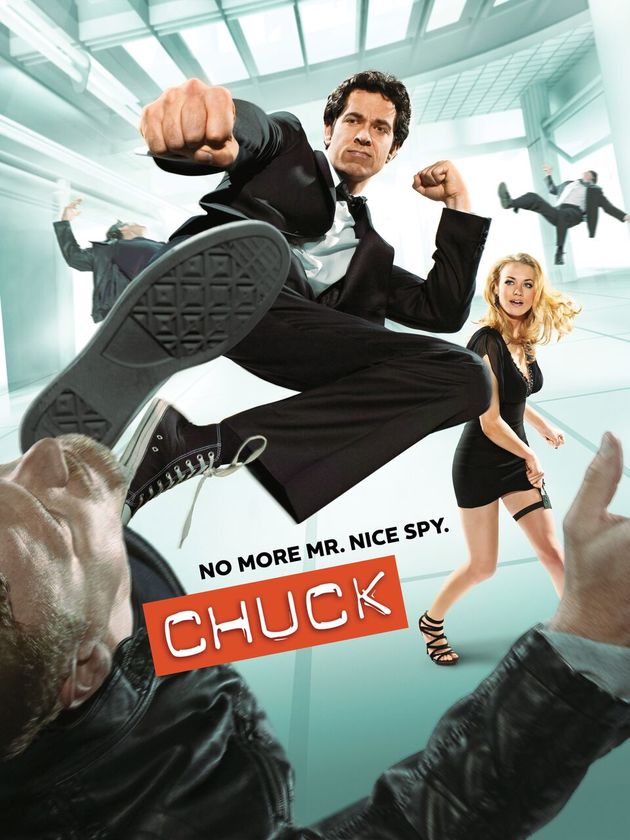Yesterday I read an interesting article titled The Masculinity Crisis and the Death of the Hollywood Hero and then later I watched a couple episodes of Chuck, the popular early aughts action comedy. It was a good reminder that nothing in our culture, good or bad, comes out of nowhere. The girlification of men has been creeping into our culture for a long time, and we shouldn’t be surprised that what started with pseudo-spy Chuck would later infect superspy Bond.
Our stories tell us we should demand less masculinity in men and that's a problem. But I like Chuck. Is there still a place for him?
As you may recall, Chuck is about Chuck, a childlike, goodhearted, worker drone at a Best Buy analog. He’s still recovering from his college girlfriend’s dumping him, and his roommate framing him and getting him kicked out of Stanford. Except it turns out, his roommate was a good spy, his ex was a bad spy, and everything happened for a reason. When Chuck accidentally downloads a computer into his head, he’s dragging kicking and screaming into the world of espionage.
Given his naive and trusting heart, Chuck makes a terrible spy.
At the end of the second season Chuck gets a powerup and the computer in his head doesn’t just provide information, but also teaches him Kung-Fu. But it can’t change his nature. So we have a relatable character, somewhat flawed, who lives in a world of wish-fulfillment. Not only does he learn martial arts with no effort, the CIA also assigns him a drop dead gorgeous girlfriend/handler, who falls in love with him.
I find it interesting that while our “hero” isn’t the manly man, the show shamelessly indulges the male gaze.
Yeah, “interesting.” We’ll go with that.
Anyway, on the one hand Chuck is the hero as a fool, like James Garner in Maverick. Except Maverick proved week after week that he actually was a man of grit and conviction, though he tried to hide it. Chuck is what he is. It’s his niceness that we’re told his great virtue, his sweet heart that makes him a hero. Look, I hope that someday people will remember that I was kind.
But not at the cost of having no backbone.
Every episode of Chuck is him basically wrestling with his angsty feelings. And because we’re drawn to the guy and entertained by the hot women and violence, we forgive it. Though it sounds like I’m being overly critical of the show, I do enjoy it. But I can’t watch anything passively, and neither should anyone else. Maybe Chuck was part of starting a trend that’s a problem today. But I still think there’s some value here.
Chuck is relatable and nothing more.
Being relatable isn’t a bad thing. We have a far stronger bond to a character like Chuck than we ever will, well, Bond. Everyone knows a Chuck, and at times we are Chuck. Empathy is healthy, and empathetic characters are among a storyteller’s goals. To that end, Chuck succeeds. Go Chuck! However, the character is never inspiring. Anyone who feels empathy with Chuck is already a nice person, and all he asks of us is that we be… even nicer?
Chuck doesn’t earn his rewards.
The cool spy life is handed to him. He bumbles into saving the day by being himself. He gets the girl by being himself. We all hope that just being ourselves will make our dreams come true, and maybe we can find some relief from the real world in imagining life works that way. Maybe that’s why I like the show. The problem is when we start to think that the fantasy deserves to be our reality.

























